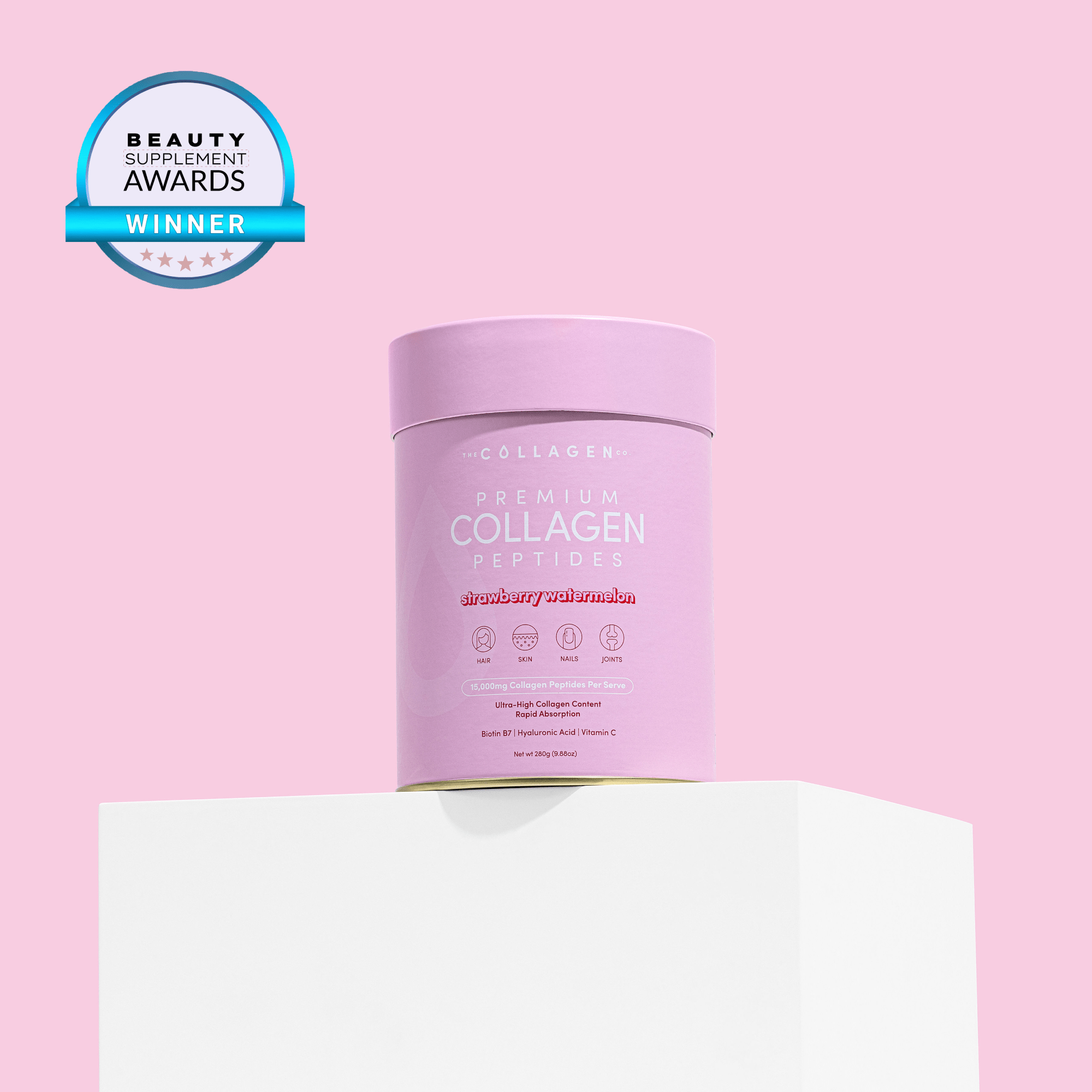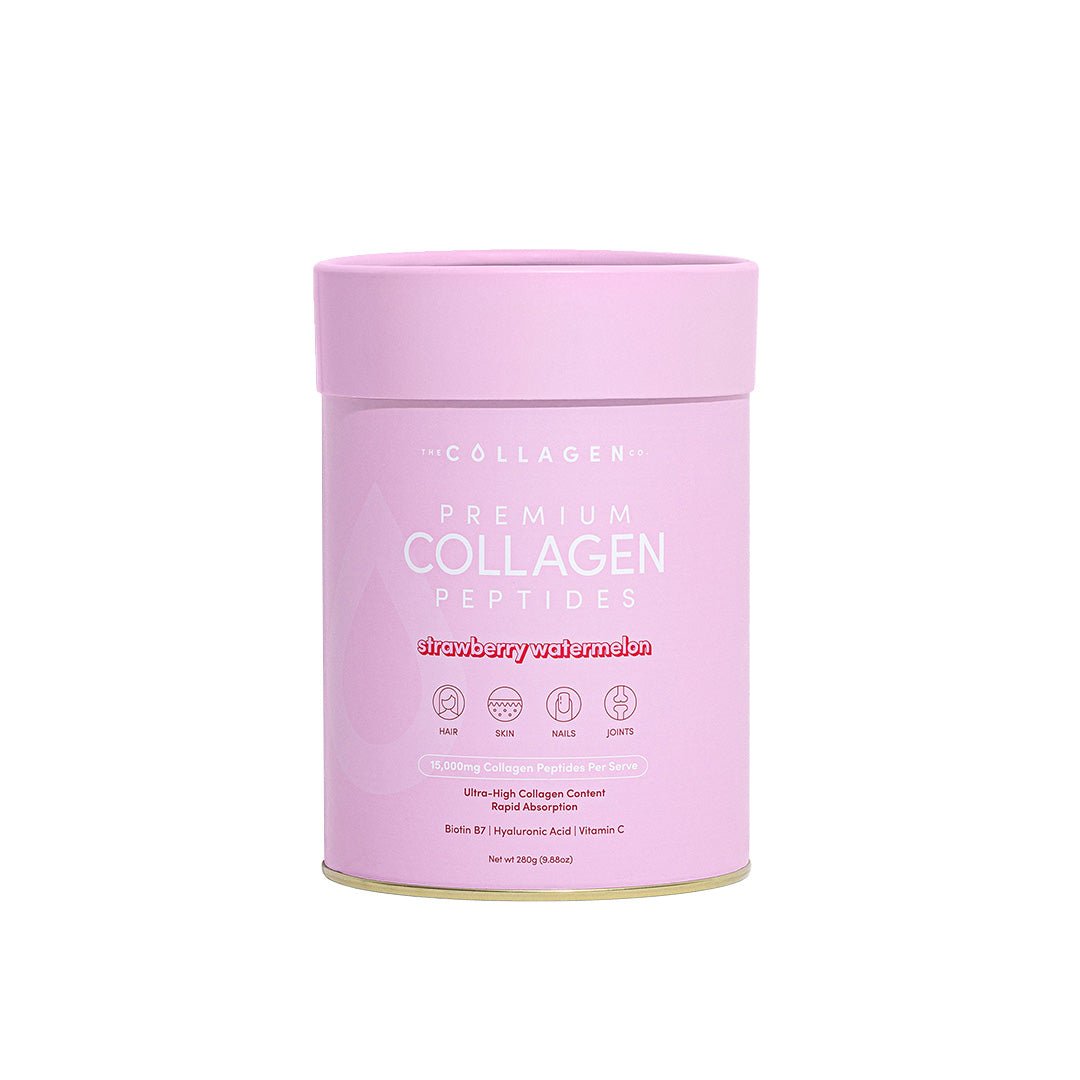Is Collagen Good for Hormones?
Posted 28th April 2022

Collagen’s list of benefits grows every day. And recently, it appears that there's a new kid on the block: hormonal health. With over 50 hormones in the human body, though, the only natural question is: "Is collagen good for every hormone?” Well, existing scientific literature suggests collagen currently only has well-documented effects on three hormones.
Still, that’s impressive—and, besides, science is ever-evolving. Who knows what scientists will find in the future? For now, though, let’s get back to the present and understand which three hormones collagen is good for.
The benefits of taking collagen for hormones
#1: Satiety hormones
Eat fewer calories than your body burns, and you’ll lose weight—that’s a fact. But getting to a negative energy balance (i.e., energy expenditure exceeds intake) isn't as straightforward. Get more movement in, and you feel hungrier. The same goes if you attempt to cut down on food portions. Ironically, the result is that you may end up eating even more than before. And … bye-bye, weight loss.
Ready for the good part? As a protein, collagen could help increase your body’s level of satiety hormones, including glucagon-like peptide-1 and cholecystokinin. Evidence also shows that collagen may suppress the hormone ghrelin, the culprit responsible for those intense hunger feelings. To summarize, collagen supplementation could help you feel full for a longer time—so you're less likely to overeat during any single meal. And yep, for those wondering: there's plenty of evidence highlighting collagen’s supportive role in successful weight loss.
#2: Cortisol (i.e., the “stress hormone”)
Chances are, like most adults, your stress levels—and, in turn, cortisol (the primary “stress hormone”) levels—are off-the-charts. And to say that this isn’t good for your health is a massive understatement; chronically elevated cortisol levels have been linked to numerous chronic conditions, including obesity, heart disease, diabetes, and gastrointestinal problems. Also, perhaps more relevantly: too much cortisol could also adversely impact skin health, causing a whole range of issues like premature skin ageing, dryness, dullness, and breakouts.
And that’s where collagen comes in to save the day, much like a superhero. According to a 2021 study published in the International Journal of Molecular Sciences, collagen inhibited the harmful effects of cortisol on the skin. In other words: collagen could exhibit a protective effect against cortisol, potentially lowering your risk for various chronic health conditions and giving you bouncier, more youthful-looking skin.
Is collagen good for estrogen?
Those with sharp eyes would have noticed that we've only mentioned two hormones thus far. So what's the third hormone that collagen is good for? The header is undoubtedly a dead giveaway, but here's the answer anyway: estrogen.
For the uninitiated, estrogen is the hormone responsible for sex characteristics and reproductive abilities in women. Much like your collagen levels (which decrease once you hit your 20s), your estrogen levels decline gradually over the years. That said, estrogen drops most sharply during menopause and post-menopause (typically between the ages of 45 and 55)—and this brings about wide-reaching effects on the body (e.g., weak, brittle bones and cardiovascular disease). More surprisingly still, it also appears that low estrogen levels also accelerate skin aging, including dryness, fine wrinkling, and poor wound healing.
So … collagen comes into the picture, how? Studies have consistently shown a positive correlation between collagen and estrogen levels. That means the more collagen you have, the more estrogen you’re likely to have. See where we’re going with this? That’s right: supplementing with collagen could boost your body’s collagen levels, which, in turn, may counter low estrogen levels.
Can you take collagen and estrogen together?
Interested in taking collagen—but already undergoing hormone replacement therapy (i.e., taking synthetic forms of estrogen)?
The only known contraindications to hormone replacement therapy are a history of breast cancer, coronary heart disease, a previous venous thromboembolic (VTE) event or stroke, acute liver disease, unexplained vaginal bleeding, high-risk endometrial cancer, or transient ischemic attack. Nothing about collagen supplementation. Bottom line? Yes, you can take collagen peptides and estrogen together.
Takeaway
Collagen could promote satiety hormones (good for weight loss purposes), inhibit cortisol effects (preventing premature skin aging), and counter low estrogen levels (granting you more youthful-looking skin). That said, not all collagen supplements are created equal. In general, the best ones should tick the following boxes:
- Hydrolyzed: Broken down into shorter amino acid chains, hydrolyzed collagen makes it easier for your body to digest—and absorb—all its goodness.
- Contains enough collagen per serving: Aim for at least 10-15 grams of collagen per serving for maximum efficacy.
- Formulated with synergistic ingredients: Taking collagen for its beauty benefits? Then you’ll want to watch out for ingredients like vitamin C, hyaluronic acid, and biotin.
Sounds like a lot to ask? It's not—because you deserve the best (we all do). That’s why we created The Collagen Co. And that’s also why every product we’ve created is designed to make you look and feel better in the shortest time possible. Get shopping here.









































